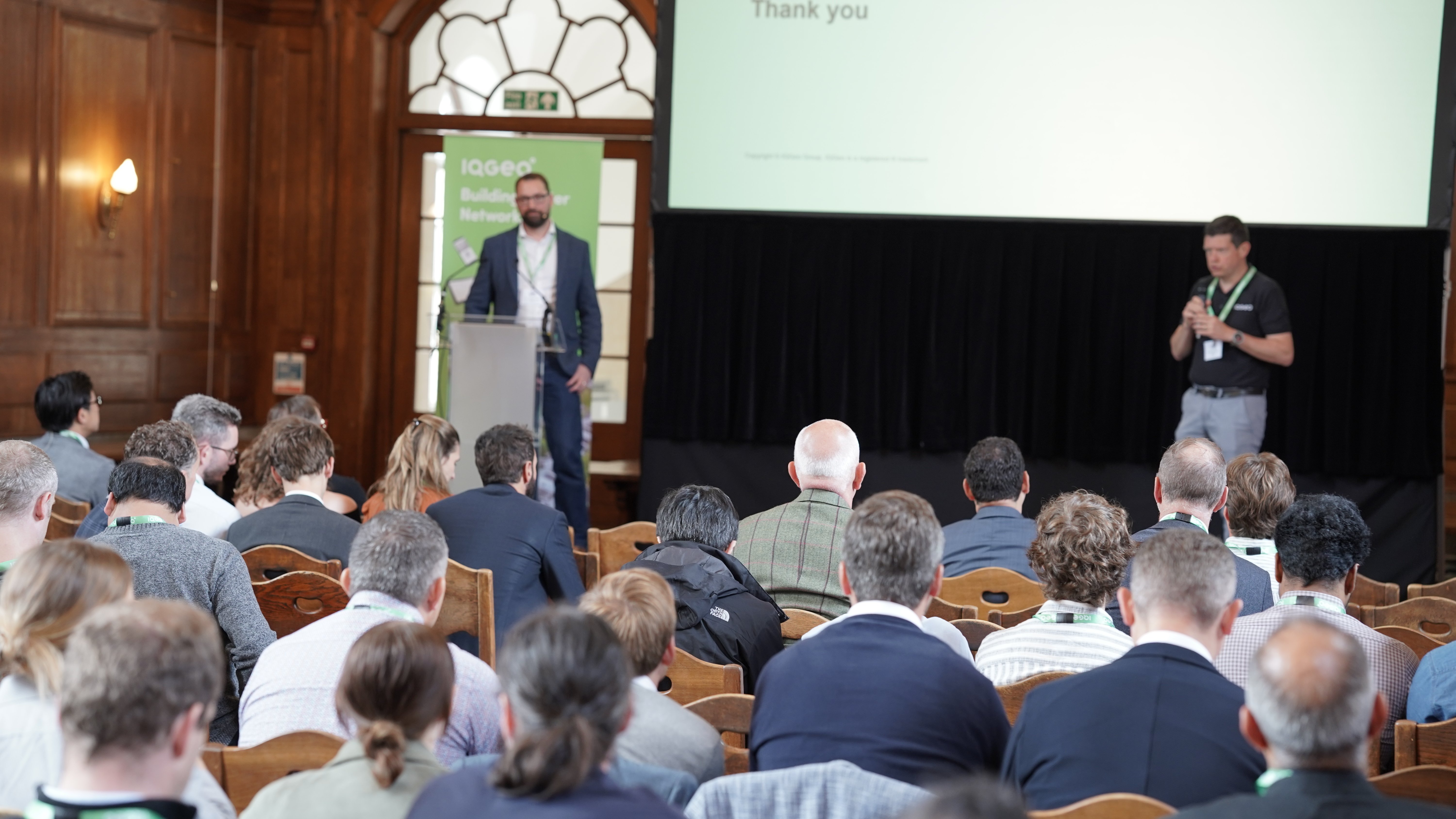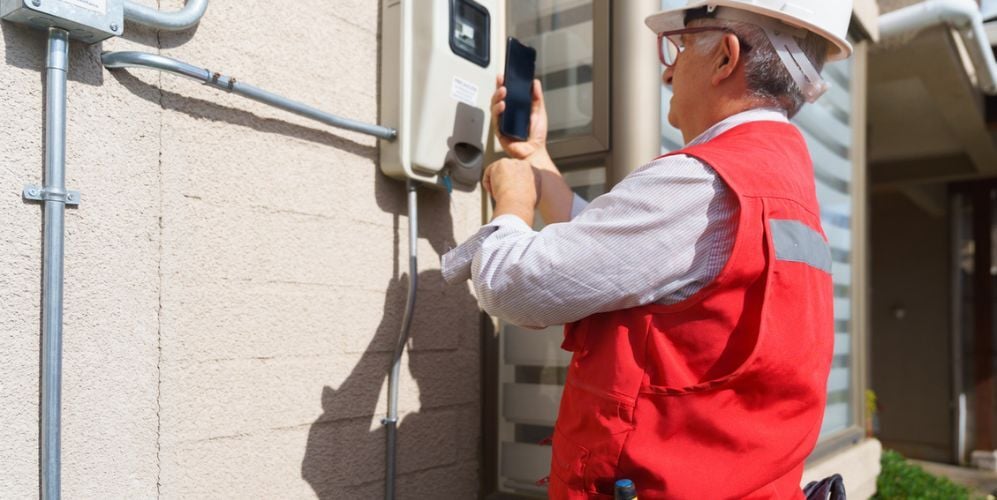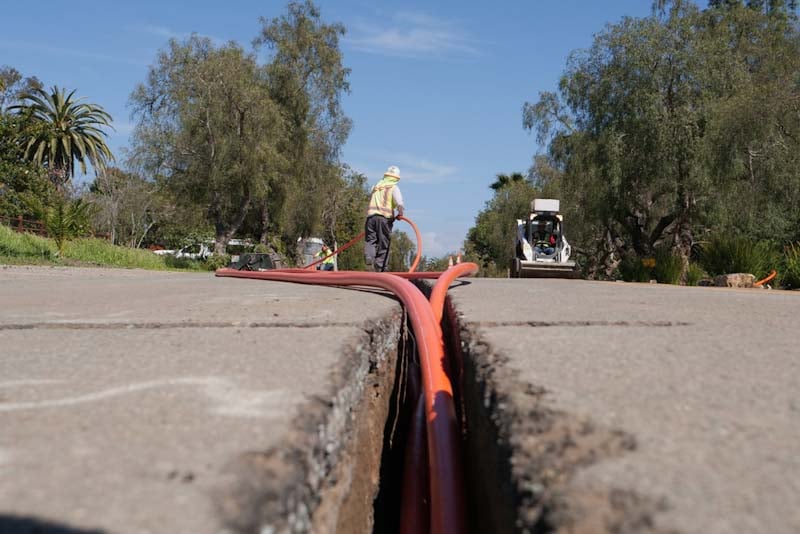Nearly 200 delegates gathered in London for the IQGeo EMEA Meetup 2025, representing fiber and telecom network operators, integrators and software providers. This year’s agenda focused on the operational realities of designing, building, operating and monetizing modern fiber networks and set out a vision for the future. Here are five themes that stood out.
1. Poor network data is still a key challenge
“For the sake of this question, imagine we had good data,” joked an attendee during the opening session on day one.
The comment reflected a recurring theme. Many operators are still struggling to trust the data that underpins their decisions, with issues such as inaccurate asset records, delayed field updates and duplicated effort affecting both day-to-day operations and long-term strategy. In a live poll, 53% of attendees said that data quality is the biggest challenge to achieving their vision of an intelligent network. And when asked what superpower they would give their network managers, the most popular answer was ‘ensuring 100% accurate data.’
Speakers highlighted the operational consequences of unreliable information. One session referenced a tier-1 operator where 30–40% of truck rolls are wasted because the underlying network data is either outdated or incomplete. As one participant noted, “what field techs encounter isn’t what’s in the system.”
Claire Eagle, Head of Strategy at the National Underground Asset Register, illustrated the sheer scale of daily data collection for operators. In the UK, a hole is dug every seven seconds for telecom and utility networks. Each one represents a potential data point that could improve infrastructure records and support proactive maintenance if the right processes are in place to capture and use it.
The key, as one speaker put it, is to start with the data you have and then put mechanisms in place to keep it accurate.
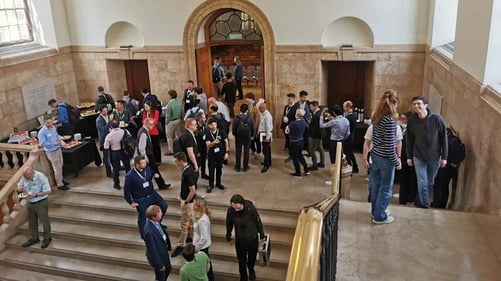
2. AI is closing the gap between plans and reality
Discussions around AI at the Meetup focused on its practical application in field operations and how this could evolve approaches to network management over time.
Deepomatic, which IQGeo plans to acquire, gave a presentation on how its computer vision technology validates field data using mobile devices that technicians already carry. The system performs automated photo analysis as tasks are completed, reducing the need for manual checks. One customer noted that they were able to deploy the solution within one to three months using off-the-shelf capabilities.
IQGeo’s opening keynote explored how, in the future, AI will help to create self-optimizing networks. Product sessions outlined a roadmap for ‘agentified’ workflows, where automation gradually takes on more responsibility for identifying issues and triggering the appropriate response. From a product development perspective, that means giving operators the ability to define rules, manage exceptions and integrate business logic in ways that remain transparent and auditable.
CEO Richard Petti explained that AI agents require two things: the ability to detect issues that matter, and the ability to take action. And without a reliable digital twin, those capabilities are difficult to scale.
As one session concluded, the move to intelligent operations isn’t defined by AI alone but depends on solid foundations of clean data, joined-up workflows and a system that can evolve with the network it supports.
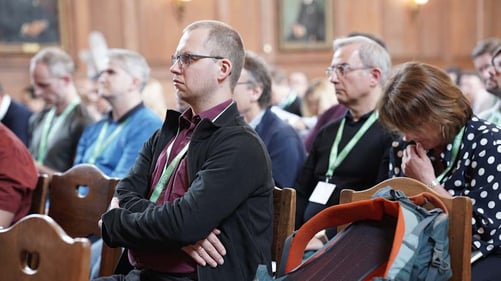
3. Operators' focus continues to shift to operations
As fiber networks extend their reach, scale introduces new complexity. IQGeo customers including Virgin Media O2 and Boldyn Networks shared how they are adapting their operations to support increasingly demanding infrastructure rollouts.
With over 6 million homes already passed, Virgin Media O2 is modernizing its approach to network operations. Following a period of significant growth through mergers, the company is moving onto mobile-first, cloud-based platforms that support real-time updates and reduce duplication of effort.
Boldyn Networks, meanwhile, is supporting connectivity across Transport for London and surrounding boroughs. With a program that is designed to enhance public access, support economic activity and improve street-level safety, the company relies on IQGeo to plan, build and operate a unified platform for delivering connectivity in complex environments.
These examples underscore a common strategy among forward-thinking companies in the fiber ecosystem: invest in scalable, integrated systems that reduce manual effort and eliminate data discrepancies.
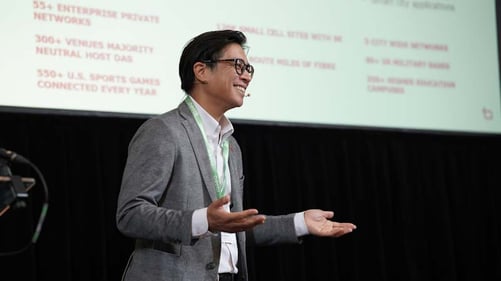
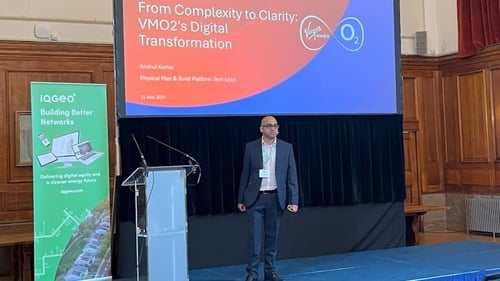
4. Quoting complexity slows time to revenue
One of the most revealing figures from the event came during a session on network monetization. One presenter reported a win rate of just 25% on issued quotes, meaning most of the time spent on cost estimation never results in revenue.
The quoting process itself often adds friction. An attendee described exporting proposed routes into Google Earth, manually drawing fiber paths, then entering figures into Excel for costing. This slow, repetitive work not only delays response times but limits an operator’s ability to respond competitively.
IQGeo’s Network Revenue Optimizer is being used to automate this process, making it possible to generate estimates with CRM systems integration. It also supports 'what if' analysis and considers additional factors like regulatory timelines, address viability and proximity to other potential customers. As noted in several sessions, the ability to identify and group adjacent opportunities can increase return on investment.
Attendees also spoke about eliminating ‘swivel chairing’ (the act of manually transferring information between systems and teams) and the value of storing historical quotes to compare estimated versus actual build outcomes.
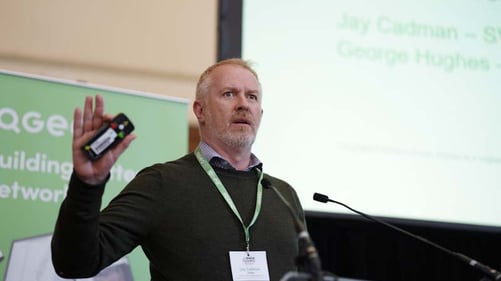
5. Industry innovation comes in many forms
The Meetup also saw the announcement of IQGeo’s 2025 EMEA Customer and Partner Innovation Award winners, now in their sixth year. The awards recognize organizations using IQGeo software to improve network operations, accelerate growth and support long-term transformation.
-
Boldyn Networks was recognized for delivering connectivity across the London Underground.
-
Virgin Media O2 received an award for its strategic redevelopment of systems and adoption of AI-driven workflows.
-
Deutsche GigaNetz was commended for building scalable, resilient operations through proactive process and system redesign.
-
CGI was recognized for its regional solution development, including tailored capabilities for Dutch market entry.
-
WKF Engineering received recognition for its commitment to technical leadership.

Registration is open for IQGeo’s annual Americas Meetup taking place on 30th September 2025, this time in Dallas, Texas.

Communications Director at IQGeo





